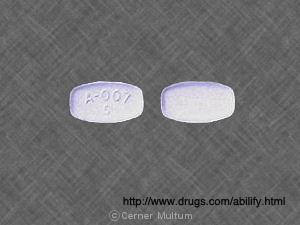Abilify Lawsuit
A brief guide to filing an Abilify lawsuit
Medical Research: What is Abilify?
Abilify is a partial dopamine agonist that utilizes antidepressant properties for the treatment of bipolar disorder, clinical depression and schizophrenia. As an atypical antipsychotic, Abilify was approved by the FDA for the treatment of schizophrenia in adolescents (ages 13-17 ) and adults with mixed and manic episodes associated with Bipolar, irritability attached with autism and depression.
Abilify: FDA Information
The FDA reports the following information concerning Abilify use:
Class Effect: In clinical trials, events of neutropenia/leukopenia have been reported. Possible risk factors for these conditions include pre-existing low white blood cell counts and history of drug induced leukopenia/neutropenia. Patients with these conditions should have their complete blood count monitored frequently during the beginning of treatment therapy.
History of Abilify Lawsuits:
Abilify, a popular medication used to treat schizophrenia, has seen its fair share of controversy since 2002 (its introductory year).
Although the drug yields a bevy of side effects, no Abilify lawsuit concerning patient harm has resulted in a settlement via a trial by jury. However, the manufacturers of the Abilify medication were the target of a Justice Department investigation in 2006-2007. Among the charges detailed in the Abilify lawsuit were accusations that manufacturer Bristol-Myers Squibb aggressively marketed the drug for non-FDA approved purposes. While an Abilify dosage is only approved to treat schizophrenia, bipolar disorder and major depression, doctors were encouraged to prescribe the medication to children, as well as elderly patients with dementia.
Abilify, which was originally developed by Otsuka (a Japanese pharmaceutical company), was approved by the United States Food and Drug Administration in 2002--since its introduction to the American markets, consumer confidence has waned, with a trough coming in 2007, where the prominent Abilify lawsuit (brought by whistleblowers) ordered Bristol-Myers to pay of $515 million to the Department of Justice.
Since studies have shown that such patients are at an increased risk for fatal Abilify side effects, such prescriptions may have endangered the lives of patients. The very act of marketing the use of an Abilify dosage for an off-label use is a violation of the law. The 2007 Abilify lawsuit was part of a larger investigation of Bristol-Myers Squibb agreed to institute a settlement of $515 million. The following year, the drug's inventor Otsuka Pharmaceuticals paid $4 million to settle similar allegations regarding improper marketing of its Abilify dosage medication.
This litigation did not concern negative Abilify side effects. No Abilify lawsuit regarding adverse effects has yet produced a publicly reported result. In 2008, the FDA ordered that information provided with the drug be updated to include a "black box warning" to publicize the potentially fatal Abilify side effects for elderly patients with dementia-related psychosis.
No Abilify lawsuit has been successfully completed concerning patients who suffered such effects before the 2008 warning. Such litigation could theoretically garner success if an attorney proved that the manufacturer did not provide sufficiently strong warnings about Abilify side effects. As with many antidepressants, treatment with an Abilify dosage increases the risk of suicidal thoughts and attempts in adults under 24 years of age.
If you wish to litigate over Abilify side effects not warned against in the packaging, contact a lawyer. When seeking an attorney search for a legal professional who is experienced in pharmaceutical law. Documentation from a physician affirming your Abilify side effects will be necessary to advance your case. The FDA should also be informed of any unusual adverse response to an Abilify dosage.
Because the company was late in providing strong warnings about Abilify side effects in elderly patients with dementia, it may be possible to litigate in states where the statute of limitations for survivors has not yet expired. An Abilify lawsuit regarding suicide could be brought forth with the same reasoning.
Abilify Side Effects:
Common Side effects of Abilify Oral include:
• Restlessness
• Indigestion
• Infrequent or incomplement bowel movements
• Difficulty falling or staying asleep
• Dizziness, anxiousness and nausea
• Increased amount of Triglyceride in the Blood
Infrequent Abilify Side Effects include:
• Foot pain
• Throat irritation
• Inflammation of the nose
• Muscle Pain
• Fatigue
• Cough
• Involuntary Quivering
• Drop in blood pressure when standing
• High amount of fats in the blood
Rare Side Effects of Abilify Oral:
• Increase in Metabolism
• Neuroleptic Malignant Syndrome
• Abnormally low blood pressure
• Pink Eye
• High Blood Pressure
• Decreased White Blood Cells
• Trouble Breathing
• Loose Stools
• Stomach Cramps
• Sluggishness
• Increased Production of Saliva
Sources:
1. United States National Library of Medicine “Aripiprazole” retrieved from
http://www.ncbi.nlm.nih.gov/pubmedhealth/PMH0000221/
2. "Bristol-Myers Squibb to Pay More Than $515 Million to Resolve Allegations of
Illegal Drug Marketing and Pricing". US Department of Justice. Retrieved from www.fda.gov
Related Topics
- Pergolide Permax Lawsuit
- Airsoft Gun
- Celexa Lawsuit
- Bactroban Lawsuit
- Advair Lawsuit
- Amitiza Lawsuit
- Zelnorm Lawsuit
- Gleevec Lawsuit
- Ketek Lawsuit
- Claritin Lawsuit
